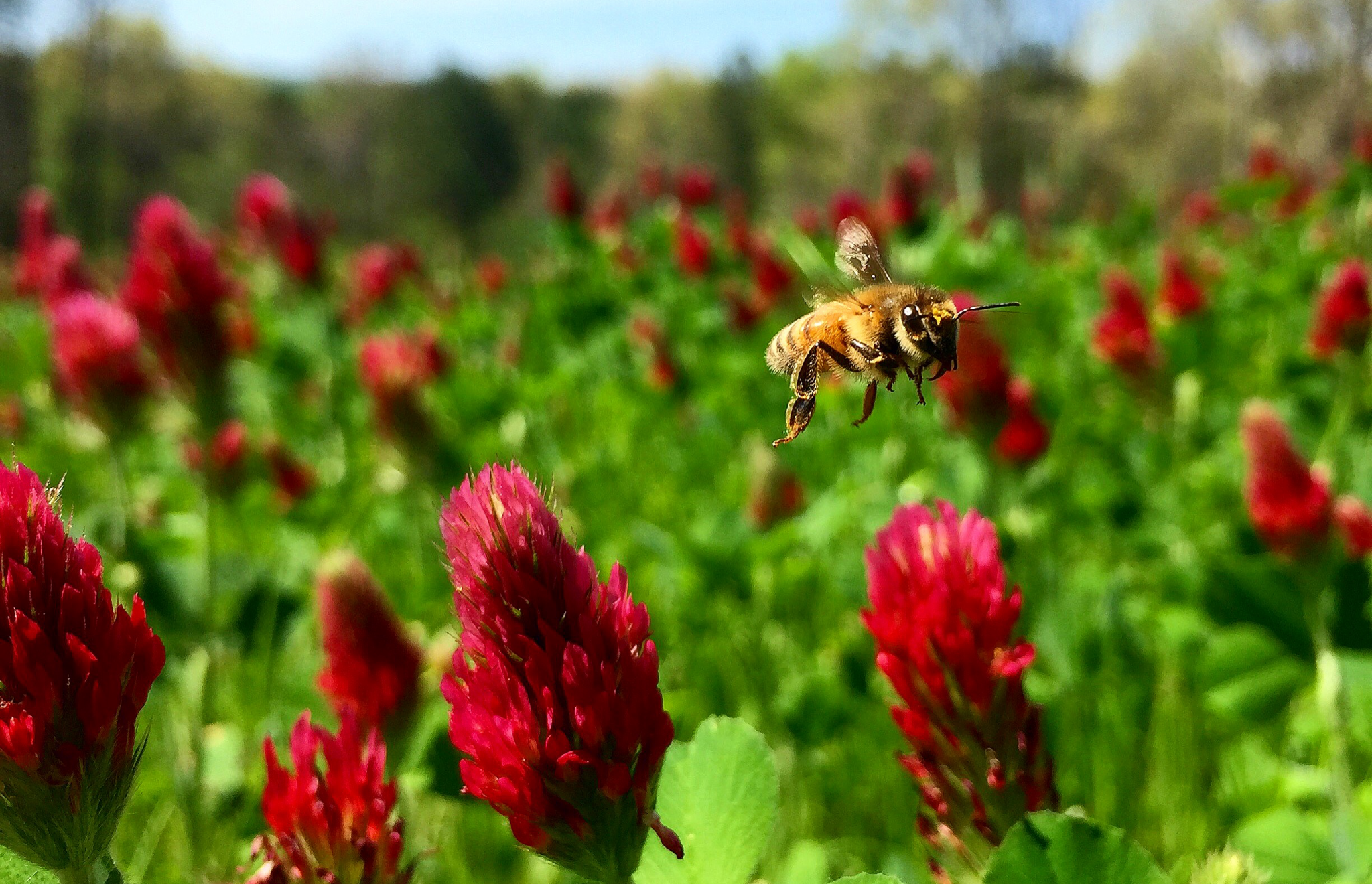Bees & Pollinators

According to a USDA estimate, pollinator-dependent crops are valued at over $20 billion. A quarter of this value is from services provided by wild native bees such as leafcutter/mason bees, while the rest is from honey bees. As a farmer this could mean that as pollinator health declines, crop health also declines. Many farmers are Global G.A.P. Certified which allows them to sell to larger wholesale buyers, such as Walmart. This certification sets the standard for many practices including Integrated Pest Management (IPM) guidelines.
The 2020 G.A.P. states that farmers must prioritize pollinator health on their farm. Many buyers like Walmart now require farmers to have third-party certifications that verify IPM adoption or that are protective of pollinator health andinclude robust IPM criteria. Some of these include
- Bee Better Certified through the Xerces Society
- Equitable Food Initiative (EFI)
- Fair Trade International – Hired Labor
- Fair Trade USA Year 6 and beyond, medium, and large farms
- Global G.A.P. Integrated Farm Assurance Fruit and Vegetable Versions 5.3-GFS and above. Flowers and Ornamental Version 5.2
- LEAF Marque
- Rainforest Alliance
- Sustainable Food Group Sustainability Standard
- Sustainably Grown (SCS Global Services)
- USDA certified organic, as well as international organic labels that meet the USDA standard for equivalency
- Additional third-party certifications may be added to the above list as they are able to demonstrate improvements to their IPM criteria
The last option is where Alabama Cooperative Extension System is working to create a class to certify farmers as pollinator friendly using IPM practices already taught by our commercial horticulture team. Extension is also working with farmers to help them obtain one of the certifications above, such as implementing practices that meet the requirements of Bee Better.
Get Started Protecting
The benefits a farmer could see from obtaining one of these certifications, beyond the increase in crop yields, include reaching a broader customer base that is willing to pay more for environmentally friendly produce or being able to sell to more wholesale outlets. Farm buffer strips are a great way to start protecting the native bees on your farm. Also, avoid spaying until evening time when bees are less active.
Reach out to Ayanava Majumdar or regional Extension agent Olivia Fuller for tips on implementing best practices to help save the pollinators.

